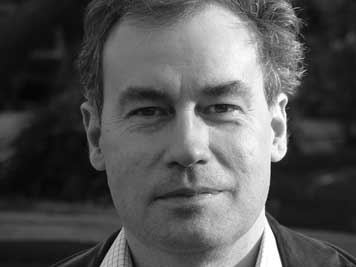|
 |
Matt Lynn Interview
Posted on 07 December 2010. © Copyright 2004-2026 WriteWords
|
WriteWords talks to Matt Lynn
 |
|
Matt Lynn
|
Tell us all about your writing background- what you’ve written, (a potted history will do if you’re very prolific, highlighting notable achievements etc) and what you’re currently writing.
I started out by writing a pair of financial thrillers, ‘Insecurity’ and ‘The Watchmen’. Then I got into ghost-writing, and wrote a whole series of action-adventure novels, mainly for military writers. I can’t tell you who they were because the publisher will sue me. But they were really successful books – three number one best-sellers, and several top five hits.
That gave me the idea for starting a series of military action stories of my own. I thought of a series of books following a group of mercenaries around the world – sort of Band of Brothers meets Andy McNab. The first in the series ‘Death Force’ came out in 2009, and ‘Fire Force’ was out in 2010. ‘Shadow Force’ is published in 2011, and I’m currently writing ‘Ice Force’ to be published in 2012.
Other work besides writing; eg. Editing, dramaturgy, tutoring, and how it works/worked for/against your own writing?
spend part of the week as a novelist, and part as a financial journalist. I write a column for Bloomberg in the US, and for Money Week here, and I write for the The Spectator as well. I’ve also just written a book on Greece and Euro crisis called ‘Bust’.
It doesn’t have that much to do with my fiction writing. But it does mean I don’t have to worry too much about whether the novels make money – I don’t need to explain that fiction is a pretty precarious way to make a living.
How did you start writing?
I’ve been writing as long as I can remember. Why? I count myself as a storyteller. I like telling stories, seeing the effect they can have on people.
Who are your favourite writers and why?
One thing that happens to you a professional writer is that you start reading in a different way. When you are reading, you always notice things about structure or pacing or characters that are interesting, so even if you don’t like the book that much, there are still things to learn from it.
Of thriller writers, I admire John Buchan, Eric Ambler, Alistair MacLean, Len Deighton, Frederick Forsyth, and Michael Crichton. Of military writers I think Sven Hassel was outstanding – he wrote incredibly vivid portraits of World War Two, and you sympathise with his characters even though they are Germans. I like to think my own books exist in that tradition, although admittedly I may be flattering myself.
Of writers in general, I guess Charles Dickens, Joseph Conrad, Graham Greene, Kurt Vonnegut, and Joseph Heller are my all-time favourites.
How did you get your first agent/ commission?
I started out as a journalist, working at a few trade publications, and then I worked at The Sunday Times for ten years. So I was already doing pretty well as a writer and I had an agent for some business books I’d written.
It doesn’t count for much when you want to write fiction, however. I sat down and wrote a book, and then asked my agent to see if he could sell it, and fortunately he did. It was a big help to already have an agent, though. That is half the battle.
What's the worst thing about writing?
The middle. The beginning of a book is great because it is a fresh start. And the end is great because it is exciting (if it isn’t, there’s something wrong with your book!). But between 40,000 and 60,000 words is a slog.
And the best?
Seeing your book printed is a fantastic thrill. And so, of course, is seeing it the bookshops. My last book ‘Fire Force’, was in Tesco, next to the Twilight books, and something by Cheryl Cole. My kids were – very briefly – impressed.
Tell us what kind of responses you get from audiences\ readers.
I’ve had a great response from readers, and it's one of the things that keeps you motivated as a writer. I’m not sure it really affects my writing, however. Writing a novel is very much a solo project. The story is a product of a single mind. No one else really has any say in it.
What inspires you to write?
The thought of getting the book into people’s hands. Plus, the sheer pleasure of writing itself. You have to really enjoy the process of putting words and stories together to keep on doing it.
If you have a useful writing exercise that’s helped you, as a writer or a teacher, pass it on?
First, concentrate on structure. The hardest thing to learn when writing a book is structure, but it’s actually the most important thing to get right. Without a solid structure, your book isn’t going to be much good. Choose a writer that you admire, and read and re-read one of their books until you understand the structure completely. Think of it as taking apart a car engine, then re-assembling it. If you do that several times, you’ll have a pretty good idea how to build a car. Same with a book. Take it apart and re-assemble it, and you’ll learn how it is done.
|
Comments by other Members
| |
No comments at present.
To post comments you need to become a member. If you are already a member, please log in .
 
| |
|
|

 Follow us on Twitter |
Articles |
Site Tour |
Help |
Terms |
Privacy |
About | Contact |
Follow us on Twitter |
Articles |
Site Tour |
Help |
Terms |
Privacy |
About | Contact |

 Comments by other Members
Comments by other Members

